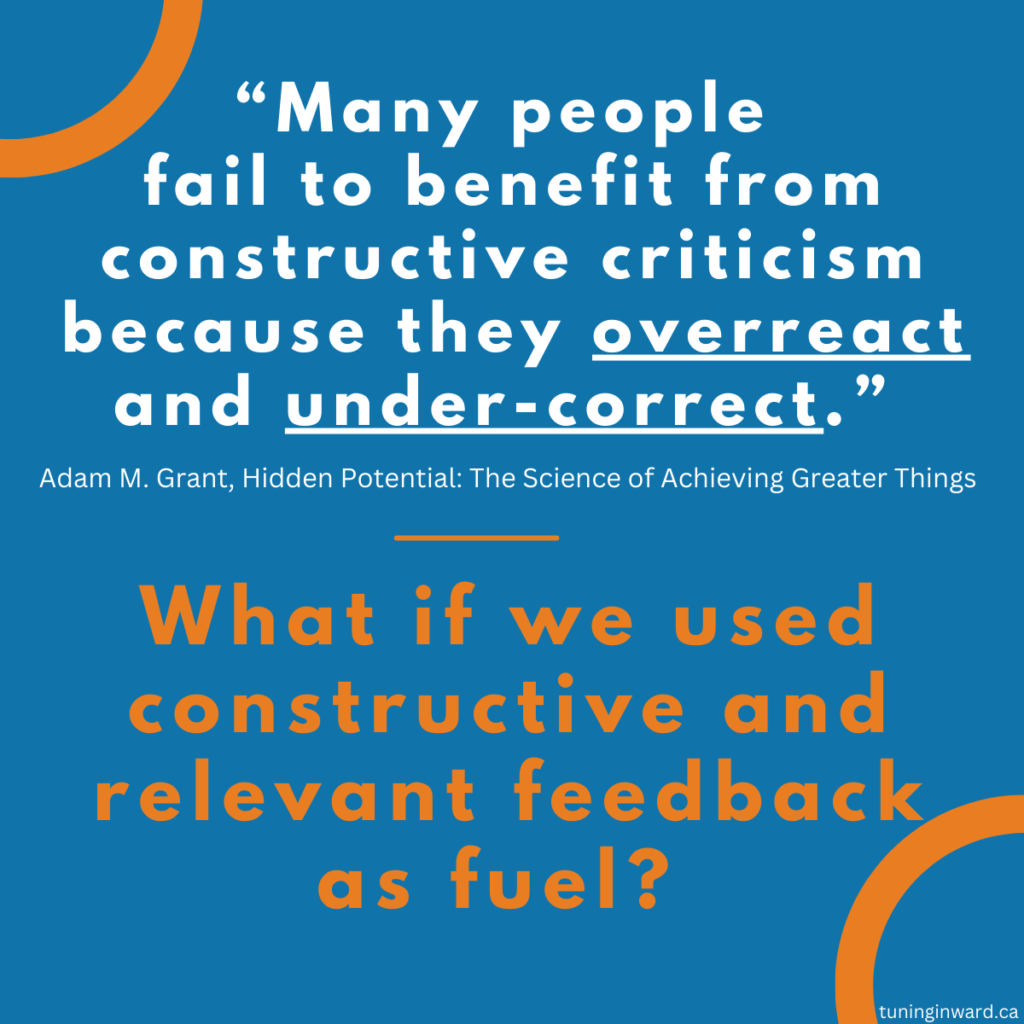We’ve all been there: sitting across from a supervisor during a performance review, heart pounding, as they offer constructive criticism. It’s a moment filled with tension and vulnerability, often leading to a defensive mindset.
Adam Grant perfectly captures the trap we fall into: we feel defensive and attacked so we over-react, which leads to a tentative, hesitant under-correction that leaves the potential for growth unrealized.

But what if we flipped the script?
Instead of seeing feedback as fire to extinguish our confidence, what if we viewed it as fuel to propel our progress?
What if we approached it with curiosity – seeking clarification, asking for specific suggestions?
Asking “how can I” to spark new ideas and give light to areas for specific action?
Reframing Feedback: From Fire to Fuel
The first step in transforming feedback into fuel for progress is changing our mindset.
Feedback, especially when it is constructive, can be a gift, offering us insight into how others perceive our work and providing specific areas where we can improve.
By reframing feedback in this way, we can shift from a place of defensiveness to a place of openness and curiosity.
Embracing Curiosity
When we receive feedback, our initial reaction might be to defend ourselves or dismiss the critique. Instead, we could take a moment to breathe and ask questions to understand the feedback fully.
For example, if a supervisor or senior partner points out that your memos lack clarity, inquire further: “Can we go through an example?” or “Can you walk me through which specific aspects you think need improvement?”
Broader questions may also be helpful to spark new ideas and action plans. Questions like: “How can I improve in this area?” or “What steps can I take to meet your expectations more effectively?” can be incredibly powerful. These questions show that you are proactive and committed to continuous improvement. They also encourage the feedback giver to provide specific suggestions, which can be more helpful than vague critiques.
By seeking clarification, we not only gain a better understanding of the feedback but also demonstrate our willingness to learn and grow. This approach can also help in identifying actionable steps to address the feedback, making the process more constructive and less daunting.
Developing an Action Plan
Once you have a clear understanding of the feedback and have asked the right questions, the next step is to develop an action plan.
This plan should include specific, measurable goals and a timeline for achieving them. For example, if the feedback is about improving your communication skills, your action plan might include attending a communication workshop, seeking out a mentor, or practicing public speaking regularly.
An action plan not only provides a roadmap for improvement but also helps in tracking your progress. Regularly reviewing and adjusting your plan ensures that you stay on track and continue to make progress.
Embracing Growth
Ultimately, the way we respond to feedback can significantly impact our personal and professional development. By viewing feedback as fuel rather than fire, we can transform moments of criticism into opportunities for growth. In doing so, we not only improve our own performance but also contribute to a more dynamic and innovative workplace.
How might you make the most of constructive criticism?